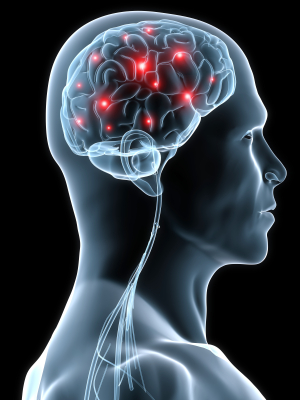Is there a natural, healthier way to fight dementia?
With roughly 24 million people suffering from it, you’d certainly hope so.1 But chances are you won’t find the help you need from your local doctor. Some drugs may help. Others can make symptoms worse.
The benefits of prescription drugs are usually small.2 But the cost of drugs and doctor’s visits can add up to cost a lot of money.
Meanwhile, there are new, optimistic studies coming out of Germany…
A group of researchers at the University of Ulm may have uncovered a safer, more effective treatment. In one study, scientists compared nutrient levels in the blood of two groups of elderly adults.
They placed “mildly demented” patients in one group. Healthy people were in Group 2. Taking into account lifestyle factors, they then compared the levels of antioxidants between both groups.
And they made a surprising find.
“There is evidence that diet and dietary supplements may affect the risk of developing dementia,” the authors of the study wrote in the Journal of Alzheimer’s Disease. Data now support a relation between antioxidants and dementia risk. Prior studies had mixed results. 3
The study showed antioxidants vitamin C and beta-carotene levels were much lower in those patients with mild dementia. 3
Older people need antioxidants more than most everyone else. These substances help protect against free radicals. These killers can make us sick and contribute to aging.4
As we age, our tissues require more vitamin C. It’s needed for healing, growth, and repair. And now we’re learning it may be crucial in protecting our brains against dementia.5 It’s important for normal brain function. And it may protect brain cells. 6
Elderly people with poor diets are at risk for a vitamin C deficiency7. And therefore, may be at a higher risk for dementia. People who live alone, smoke, and have a low income, are at an even greater risk.8,9
To avoid a deficiency, it is best to get your vitamin C from food, rather than in supplement form.5 However it can’t hurt to add a pill to your daily routine.
Dietary antioxidants (including vitamin C) are necessary nutrients for everyone, not just the elderly. They can fight the free radicals that not only contribute to dementia and Alzheimer’s, but heart disease, cancer, osteoporosis, and more.10
You can reduce YOUR risk of these diseases the natural way. By eating healthy foods.
The Harvard School of Public Health lists these as “excellent sources” of vitamin C:
- Citrus fruits (or citrus juices)
- Berries,
- Red or green peppers
- Tomatoes
- Broccoli
- Spinach.11
For beta-carotene, which converts to vitamin A12, the Mayo Clinic suggests carrots, dark-green leafy vegetables, sweet potatoes, broccoli, cantaloupe, and winter squash.13
As always, aim for fresh, unprocessed foods. Choose organic produce. It has been shown to have higher vitamin C content…and less nitrates.14
References:
1 http://www.disabled-world.com/health/aging/dementia/statistics.php
2http://www.ncbi.nlm.nih.gov/pubmedhealth/PMH0001767/
3http://iospress.metapress.com/content/h3215182vr7h5830
4http://www.nlm.nih.gov/medlineplus/ency/article/002404.htm
5http://www.ncbi.nlm.nih.gov/pubmed/22366772
6http://www.parkinson.org/Parkinson-s-Disease/Treatment/Complementary-Treatment/Antioxidants–Vitamin-C-and-E,-Mediterranean-Diet.aspx
7http://www.limestrong.com/scurvy.htm”>http://www.limestrong.com/scurvy.htm
8http://www.springerlink.com/content/f812045h45q81363/
9http://ajcn.nutrition.org/content/90/5/1252.short
10http://www.webmd.com/a-to-z-guides/features/anti-aging-diet
11http://www.hsph.harvard.edu/nutritionsource/what-should-you-eat/vitamin-c/index.html
12http://www.mayoclinic.com/health/beta-carotene/NS_patient-betacarotene
13http://www.mayoclinic.com/health/drug-information/DR601461
14http://www.organicag.org/organic/fruit/64.html

